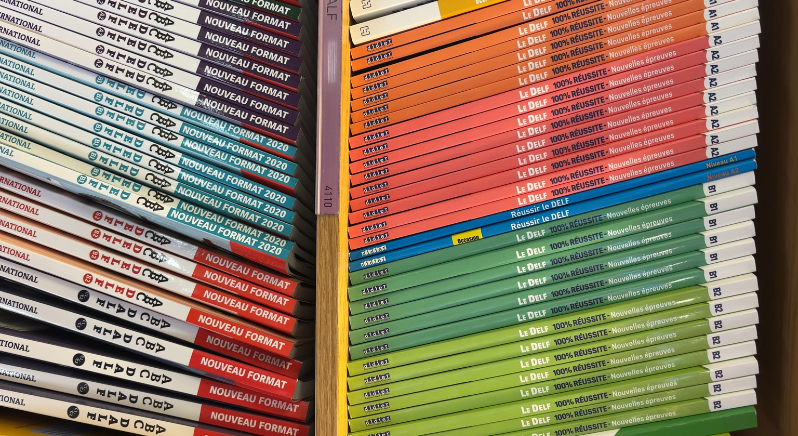Learning a new language can be an exciting yet challenging endeavour, especially when it comes to understanding grammar. If you’re just starting your journey into the French language, understanding basic French grammar is essential.
This guide will introduce you to the foundational grammar rules that every beginner needs to know. Whether you’re planning to study in France, travel, or simply broaden your linguistic horizons, these basic French grammar rules will set you on the path to fluency.

Nouns and Gender
In French, all nouns have a gender; they are either masculine or feminine. This concept might be new if your native language does not have gendered nouns. Here’s a simple rule to remember:
- Most nouns ending in -e are feminine.
- Nouns ending in other letters are typically masculine.
For example:
- La maison (the house) is feminine.
- Le livre (the book) is masculine.
- Le chien (the dog) is masculine
- La voiture (the car) is feminine.
- La chaise (the chair) is feminine.
Articles
Articles in French agree with the gender and number of the noun they modify. There are definite articles (the) and indefinite articles (a, an).
- Definite articles: le (masculine), la (feminine), les (plural)
- Indefinite articles: un (masculine), une (feminine), des (plural)
For example:
- Le chat (the cat) – masculine
- Une pomme (an apple) – feminine
- Les étudiants (the students) – plural
Adjectives
Adjectives in French must agree in gender and number with the nouns they describe. This means that adjectives will change their endings based on whether the noun is masculine, feminine, singular, or plural.
For example:
- Un grand chien (a big dog) – masculine
- Une grande maison (a big house) – feminine
- Des grands chiens (big dogs) – masculine plural
- Des grandes maisons (big houses) – feminine plural
French Subject Pronouns
Subject pronouns are essential in French as they indicate who is performing the action of the verb. Here are the French subject pronouns:
- Je (I)
- Tu (You – singular, informal)
- Il/Elle (He/She)
- Nous (We)
- Vous (You – singular formal or plural)
- Ils/Elles (They – masculine/feminine)
Basic Sentence Structure
A basic French sentence follows the Subject-Verb-Object structure, similar to English. However, the placement of adjectives and adverbs can differ.
For example:
- Je mange une pomme (I am eating an apple)
- Il est très intelligent (He is very intelligent)
- Elle aime les chats (She likes cats)
- Nous regardons un film (We are watching a movie)
- Ils visitent la France (They are visiting France)

Verb Conjugation (Present)
French verbs are conjugated to reflect the subject and tense. Regular verbs follow specific patterns depending on their endings (-er, -ir, -re). Here are examples in the present tense:
| Subject | Parler (to speak) -er ending: | Finir (to finish) -ir ending: | Vendre (to sell) -re ending: |
| Je | parle | finis | vends |
| Tu | parles | finis | vends |
| Il/Elle | parle | finit | vend |
| Nous | parlons | finissons | vendons |
| Vous | parlez | finissez | vendez |
| Ils/Elles | parlent | finissent | vendent |
Negation
To make a sentence negative in French, place ne before the verb and pas after it.
For example:
- Je ne comprends pas (I do not understand)
- Il n’aime pas les légumes (He does not like vegetables)
- Nous ne regardons pas la télévision (We do not watch TV)
- Elle ne parle pas anglais (She does not speak English)
- Ils ne vont pas à l’école (They do not go to school)

Best Resources to Learn Basic French Grammar as a Complete Beginner
Starting your journey to learn French can be overwhelming, but with the right resources, you can make significant progress. Here are some of the best resources for complete beginners: https://stg-gogofrance-ggfstaging.kinsta.cloud/en/blog/best-resources-for-learning-french/
By understanding nouns and their genders, articles, adjective agreement, sentence structure, verb conjugation, and negation, you will build a strong foundation for more advanced studies. Remember, practice is key!











